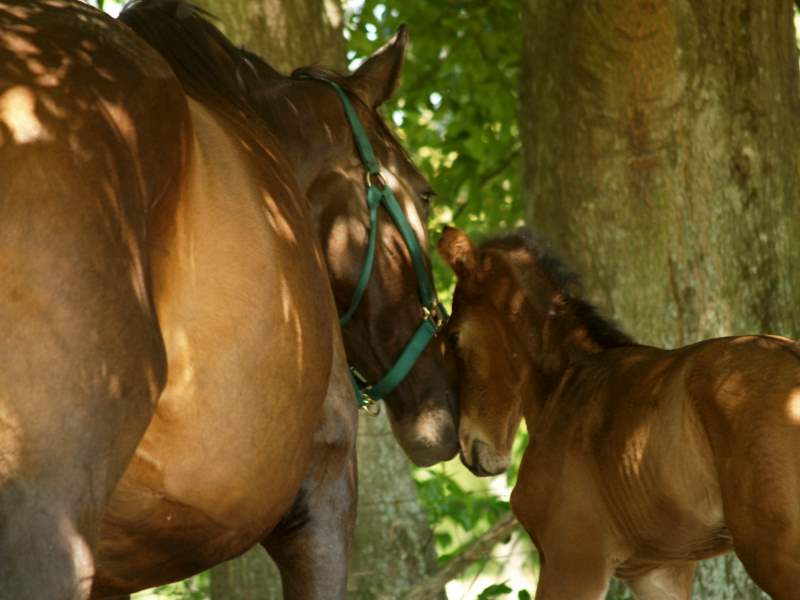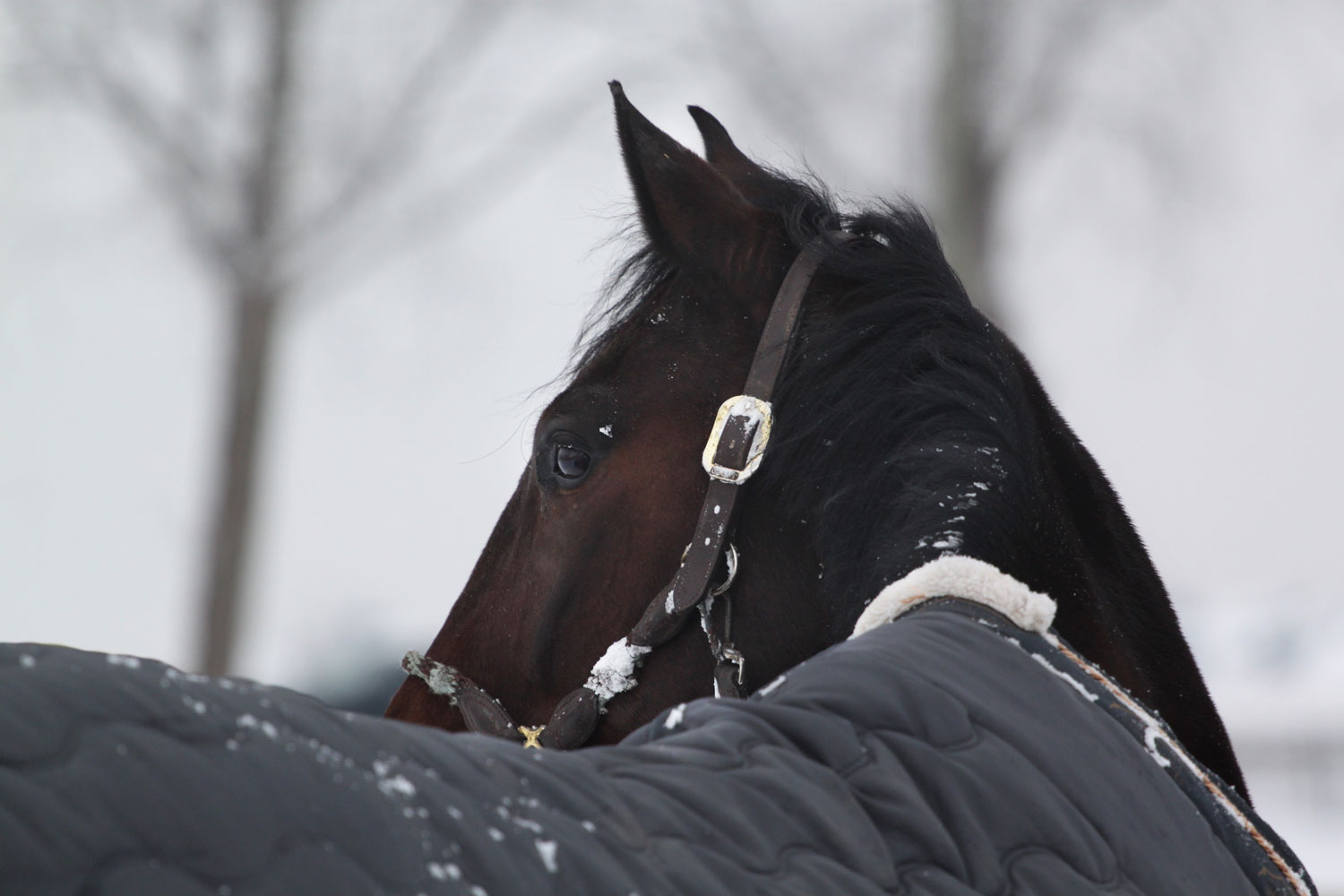Feeding the same amount of forage continuously around the clock decreased estrous abnormalities and improved fertility in broodmares.
Dietary management is likely one of your top priorities when working with clients to prepare mares for breeding. Ensuring a healthy weight, nutrition, and overall wellness are critical for both successful conception and pregnancy. But are you aware that, beyond what mares are fed, how often they are fed can also have an impact on breeding success?
It’s well known that allowing horses free access to quality roughage is best for digestive health, and now it has been shown to also improve fertility in breeding mares.
Study Shows Temporal Feeding Pattern May Influence Reproduction Efficiency
A 2013 peer-reviewed study, Temporal Feeding Pattern May Influence Reproduction Efficiency, the Example of Breeding Mares, showed a strong correlation between continuously feeding roughage and improved reproductive success in broodmares.
One hundred Arabian mares between the ages of 4 and 21 years, and in good general and reproductive health, were included in the study, conducted specifically to examine how patterns of feeding affect reproductive success. Researchers found that the mares with continuous access to hay:
- Were much more likely to be in foal by mid-June than horses with restricted access to forage.
- Were nearly twice as likely to conceive on the first insemination, as compared to the mares with less grazing time.
- Had more regular cycles.
They concluded, “The results obtained in the present study reveal that the mere temporal pattern of feeding, may have a major impact on reproductive success in horses. Thus a ‘continuous foraging’ pattern decreased oestrus abnormalities and increased conception rates. Coming closer to the natural patterning of foraging behaviour in horses may be thus an easy and efficient way of increasing reproduction in the domestic situation.”
Continuous Forage and Fertility Study Method and Procedure
Each broodmare was kept in an individual box stall overnight and turned out in a dry lot every day from 9am to 3pm. The horses were each fed 4kg of barley grains and 10kg hay per day.
Half of the horses were in the “standard feeding” group and were given their barley grains morning and evening in their stalls, with their full portion of hay provided at the evening feed. The “continuous feeding” mares were given 5kg of hay in their stalls at night, and the other 5 kg in hay nets during their daily turnout (and also received barley grains morning and evening). All conditions of their environment and care were the same, except the continuously fed mares had access to hay for an additional 6 hours per day.
None of the mares had been bred prior to coming to the facility. Oestrus was detected once every 48 hours, mating or insemination performed every 48 hours until ovulation was detected, ultrasounds performed 15 days after ovulation to detect pregnancy, and pregnant mares re-examined after 30 days to confirm pregnancy.
Results Show Clear Correlation Between Continuous Forage and Fertility
The correlation between continuous feeding and improved reproductive success was clear:
| Continuous Feeding | Standard Feeding | |
| Oestrus Abnormalities | 2 | 18 |
| First Service Fertility | 59% | 32% |
| Overall Fertility | 81% | 53% |
Recommend Free Access Forage for Broodmares
This study provides yet another example in a growing line of research indicating the critical role digestive health plays for overall wellness. While it didn’t examine the specific physiology behind the continuous forage and fertility connection, other research suggests that:
- Restricted feeding time stresses horses mentally and physically, and stress is known to have a negative impact on reproduction.
- Continuous forage improves metabolism in horses, triggers digestion, and encourages a healthy gut, so the mares may have an enhanced body condition better for reproductive success.
Further, the benefits of maximizing forage in the diet, reducing grain-based concentrates, and returning to a more continuous feeding model are more far-reaching than just these implications for broodmare fertility. Recommending an approach that mimics the horse’s natural diet and feeding patterns also helps:
- Reduce the risk for ulceration and colitis.
- Reduce the risk for colic.
- Maintain the delicate balance of the hindgut.
- Contribute to overall improved body condition and wellness.
In turn, a healthier gut contributes to overall wellness which impacts performance at every level – for broodmares and any horse.
Manage Digestive Health for Better Broodmare Health
The mental and physical benefits of continuous feeding for broodmares contribute to a healthier digestive tract, improved body condition, better wellness, and even improved fertility. We recognize that the ideal feeding pattern isn’t always possible, but taking additional steps to support and encourage digestive health is also beneficial.
Learn more about how supporting gastrointestinal health in mares may also improve colostrum IgG levels. Veterinarians may register for the SUCCEED Veterinary Center to access exclusive research surrounding GI health and pregnant mare’s immunity and IgG levels.
Citation:
Benhajali H, Ezzaouia M, Lunel C, Charfi F, Hausberger M. Temporal Feeding Pattern May Influence Reproduction Efficiency, the Example of Breeding Mares. Bacurau RFP, ed. PLoS ONE 2013;8(9):e73858.
Photo by Hunter Desportes, licensed via CC2.0.





